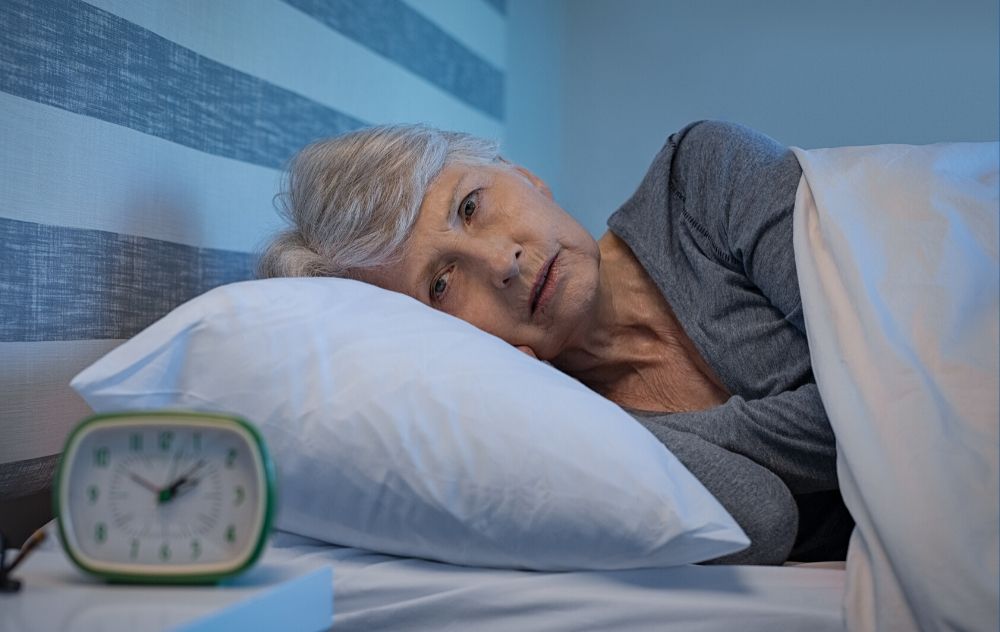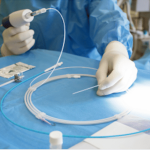
Do restless legs prevent you from sitting or staying still for a long period of time? If so, we want you to know there is help available. Along with being uncomfortable and frustrating, this common condition can also impact sleep quality. Chronic fatigue has the potential to negatively affect your overall physical and mental health.
In some cases, Restless Leg Syndrome (RLS) may be a sign of underlying vein disease. If you are experiencing symptoms, it’s time to take action, as there are several effective treatments available. Here’s everything you need to know about RLS symptoms, their causes, and your treatment options.
What Is Restless Leg Syndrome?
Restless Leg Syndrome (RLS), also known as Willis-Ekbom disease (WED), is a common neurological disorder. This condition involves the overwhelming urge to move the legs and, sometimes, other areas of the body. Those with RLS can also experience unpleasant or unusual sensations in the affected areas. Symptoms often intensify at night, making it difficult to sleep.
RLS affects about 7 to 8 percent of the U.S. population. For most, there is no cure. However, the condition may be temporary when developed during pregnancy.
We want you to understand that just because there isn’t a cure, doesn’t mean you are destined to suffer. At USA Vein Clinics, we can help identify the causes behind your restless legs. We can also help you find effective Restless Leg Syndrome treatment.
Restless Leg Syndrome Symptoms
With any potential health issue, it is vital to be on the lookout for signs and symptoms. The same goes for Restless Leg Syndrome. Whenever you notice something unusual, don’t hesitate to bring it to the attention of your doctor for an accurate diagnosis.
Restless Leg Syndrome symptoms include:
- Irresistible urges to move your legs
- Urges that intensify the longer you sit or lay still
- Uncomfortable sensations in your legs like tingling, throbbing or itching
- Limb twitches
- Leg issues that get worse in the evening or at night
- General restlessness
- Fatigue due to lack of sleep
RLS symptoms can come and go, or worsen and improve, over periods of time. If you are experiencing any of these leg issues, it may be time to look into Restless Leg Syndrome treatment.
What Causes Restless Leg Syndrome?
Unfortunately, we don’t entirely understand the causes behind Restless Leg Syndrome. We do know that research points to gene variants as a contributing factor. If you have a family history of RLS, you may be at greater risk of developing it.
Other potential causes or risk factors behind RLS include:
- Pregnancy
- Anemia
- Low iron levels
- Kidney disease
- Heart disease
- High blood pressure
- Peripheral neuropathy
- Lack of exercise
- Excess caffeine intake
- Smoking
- Drinking too much alcohol
- Anxiety
- Vein disease
Vein disease is sometimes overlooked as a cause of RLS. If you are experiencing restless legs or other vein disease symptoms, contact a medical professional. This can reduce your chances of developing a more serious health condition like venous ulcers or blood clots.
Feeling a Little Restless? Speak to a specialist and get all the info you need on RLS.
Is Restless Leg Syndrome Hereditary?
Restless Leg Syndrome (RLS) is believed to have a hereditary component. Research has shown that a family history of RLS increases the likelihood of developing the condition. Individuals with a first-degree relative, such as a parent or sibling, who has RLS are at a higher risk of experiencing it themselves. However, while genetics may play a role in predisposing someone to RLS, it is not the sole determinant. Other factors, such as certain medical conditions, iron deficiency, pregnancy, and lifestyle choices, can also contribute to the development of RLS. Despite the genetic link, not everyone with a family history of RLS will necessarily develop the condition.
How to Treat Restless Leg Syndrome
Although you probably can’t eliminate Restless Leg Syndrome, there are some things you can do to improve it.
It may be helpful to:
- Move around more
- Take short, frequent walks as often as possible
- Get up to stretch your legs throughout the day
- Stretch your legs in the mornings and evenings
- Massage your legs when you are unable to move or stretch
While there are no medications specifically developed to treat RLS, there are some that may bring symptomatic relief. Ask your doctor about those that increase dopamine or affect calcium channels, and how they might help. You might also want to consider muscle relaxants, sleeping medications, or opioids to reduce discomfort and help you rest.
Finally, don’t forget to review current medications that you take for other conditions with your doctor. Some of these may actually be underlying contributors to RLS.
Restless Leg Syndrome Treatment and Lifestyle Changes
Along with self-care and possible medication options, lifestyle changes are key to managing Restless Leg Syndrome. Here’s what we’d like you to try:
Exercise regularly: This is the number one best way to reduce your RLS symptoms. Regular exercise can also help with improved sleep quality and stress management.
Manage your stress levels: Different types of restlessness are often tied to stress, so do what you can to avoid it. Soothing activities like yoga, meditation, massage, or hydrotherapy can potentially combat some of the ill effects of anxiety.
Quit smoking: Smoking has ties to many undesirable health conditions and diseases, including RLS. If you’d like to stop but need some assistance, please ask your doctor about any recommended smoking cessation programs.
Drink less caffeine and alcohol: It is widely believed that excess caffeine and/or alcohol can contribute to the development and worsening of Restless Leg Syndrome. Although you may not need to eliminate these beverages, it is recommended that you consume safe levels. Ask your doctor what is considered safe for you.
Seek treatment advice from our experts: If you believe that you have RLS, we encourage you to seek Restless Legs Syndrome treatment advice from a medical professional. At USA Vein Clinics, it is easy to visit one of our renowned vein specialists to explore your options.
Restless Leg Syndrome Treatment at USA Vein Clinics
Although Restless Leg Syndrome is not often considered serious, there is little doubt that it can make you miserable. If you are experiencing restless legs or any other potential symptoms of vein disease, our vein specialists are available to help.
Our nationwide network of clinics offers treatment for restless legs, varicose veins, spider veins, and more. You may be surprised to learn that vein treatment usually takes only 15 to 30 minutes. Plus, our minimally-invasive techniques allow you to immediately return to normal activities. Why suffer any longer?
To learn more about vein disease treatment, please contact us at 888.768.3467 or schedule an appointment online.





